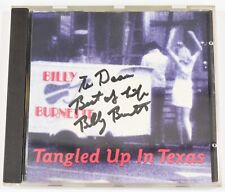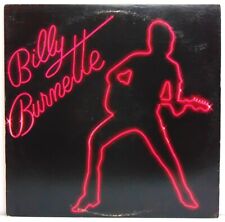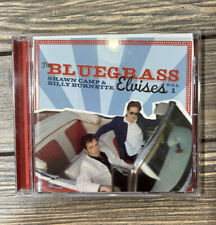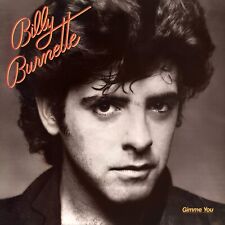|
Guitar Player, Green God Breaks His Silence HEADLINE: Peter Green: the "Green God" breaks his silence; blues guitarist; includes related article on other former Fleetwood Mac members; Interview BYLINE: Fisher, Ben BODY:
Peter Green was one of the finest guitarists to emerge from the 1960s British blues movement. Despite his almost total absence from the mainstream music media since his 1970 departure from Fleetwood Mac, he is still held in the highest regard by his peers and devotees, some of whom consider him the best white blues guitarist ever. * Eric Clapton has called Green "one of the best." B.B. King credits him with having "the sweetest tone I ever heard. He's the only one who ever gave me cold sweats." Gary Moore, the protege to whom Peter passed his '59 Gibson Les Paul after leaving Mac, continues to coax Green-like sounds out of his idol's ax. Jimmy Page, Carlos Santana, Jimi Hendrix, Stevie Ray Vaughan--all were captivated by Green's magic. * Green's first big break came in July 1966, when he replaced a Cream-bound Eric Clapton in John Mayall's Bluesbreakers after having filled in briefly for Clapton the preceding November. Green proved quite capable of filling Clapton's supposedly unfillable shoes; before long, the shouts of "Where's Eric?" and "Bring back 'God'" were drowned out by cheers and adulation for a new "Green God." It soon became clear that Peter could not only mimic Clapton's stabbing, fiery sound, but was also developing an articulate style of his own. His emerging voice aspired to say as much as possible in a few well-chosen notes delivered with a haunting, sweet-yet-melancholy tone. Mike Vernon, who produced both the Clapton and Green Bluesbreakers sessions as well as Green's early Fleetwood Mac output, recently commented that compared to Clapton, "Peter had a deftness, a touch, and a more melodic style. He was the very best blues guitarist England has ever produced." "The Supernatural," an instrumental from the Bluesbreakers' A Hard Road LP, is one of Green's most extraordinary early recordings. While grounded in a Claptonesque Les Paul-and-Marshall sound, the track's compositional depth, Latin-flavored backing, and reverb-drenched sustained notes captured Green's blossoming originality. Green also answered "Hideaway," Clapton's Bluesbreakers Freddie King tribute, with an equally adept reading of King's "The Stumble." After a year with Mayall, Green split to form Fleetwood Mac with Bluesbreakers alumni Mick Fleetwood and John McVie and Elmore James adherent Jeremy Spencer. As Clapton and other leading British guitarists moved on to a heavier, more psychedelic sound, Green quickly became the reigning hero of the booming British blues scene. Fleetwood Mac's strictly-blues February 1968 debut, Peter Green's Fleetwood Mac, shot to #4 on the British pop charts. Later that year the group recruited 18-year-old Danny Kirwan, cementing a triple-lead-guitar lineup. By then the boundary-breaking spirit of the decade had touched Green too. He led Mac through a period of stylistic expansion graced by his passionate, poetic guitar work. The Greenera Fleetwood Mac LPs--including Mr. Wonderful, English Rose, Then Play On, and the live Boston Tea Party--chronicle a guitar genius at the peak of his abilities. Standout tracks include the #1 British instrumental hit "Albatross," an ethereal sojourn to a gentle, dreamy soundscape and the inspiration for the Beatles' "Sun King"; the Otis Rush-influenced "Black Magic Woman," later a hit for Santana; the blues rave-up "Stop Messin' Round," in which Green sounds like a supercharged B.B. King; "Oh Well," a Dylanmeets-Zeppelin blend of sardonic wit and musical bombast; and the harrowing "The Green Manalishi (With The Two-Pronged Crown)," a proto-metal number inspired by a mescaline vision of the devil. Green, however, was becoming estranged from the music business. Like many in the maelstrom of the '60s, he had been experimenting with psychedelic drugs and was becoming drawn towards what some considered a naive spiritual altruism. He shocked the music world by resigning from Fleetwood Mac in 1970 following a disagreement over his wish to donate the band's profits to the fight against Third World starvation. After a series of free club gigs and a decidedly uncommercial solo LP (The End Of The Game, which documented an all-night jam with no pre-written songs), Green withdrew from the record industry. For the bulk of the decade he kept a low profile, making only rare and usually uncredited cameo session appearances. Rumor had it that he had given away all his money and was living as a wandering ascetic. To little fanfare, Green reemerged in the late '70s and early '80s with three small-label releases. In The Skies spotlighted the talents of his then-wife and lyricist Jane Green, while Little Dreamer and White Sky showcased the song-writing of his brother, Mike Green. But then Green retired again, and he has been living quietly away from the business for over ten years. I met up with Peter recently at his brother Mike's home in England. Not long into the conversation, Mike brought out his Goya acoustic, and Peter provided a rare lesson in playing his original riffs correctly. My first impression of Peter was the striking appearance of his hands. While not as lean and spidery as Robert Johnson's nor as long-fingered as Jimi Hendrix', they have a similarly sensitive, otherworldly quality. While soft-spoken, self-effacing, and evidently still recovering from past traumas, Peter proved to be articulate, humorous, and very much tuned in to music and his own legacy. Many regard you as one of the all-time great British guitar heroes. I don't think I qualify as a guitar hero--I make too many mistakes. There are plenty of technical players, but isn't it really the feeling that counts most? Yeah, there are some guys that play mimics a repeated scale played fast . I can't play like that. I can't relate to that kind of playing. There was a guy I jammed with once who played like that. I just stopped playing. It intimidates me. There was a time when I didn't make any mistakes, when I was playing for free. That's when I played at my best. Was that before or after Fleetwood Mac? It was directly after. I played a tour with just myself and Nick Buck, an American guy who played electric piano. That's when I was playing my best. When you're getting paid, there's too much pressure. I've got money now--I'm not rich, but I'm comfortable. It takes away the motivation to play. I can't play very well now, because I'm out of practice. I hardly ever touch a guitar. I'm on some medication--I don't know what it is--but it makes it hard to concentrate. I rarely feel like playing. Are there any tapes of you during your free tour? Not that I know of. Can you show me how to play "Albatross" correctly? Green fingers an Emaj7 fragment by laying his index finger across the top three strings at the 4th fret, adding a difficult-to-emulate vibrato. It sounds like "Happy Birthday" to me! He sings "Happy Birthday" over the "Albatross" figures, smiling sheepishly. A lot of people compare it to Santo & Johnny's "Sleepwalk." That is a truly great song. That will be remembered longer than "Albatross." What about the riff on "Rattlesnake Shake"? That's A octaves on the E and D strings with the rest of the strings ringing open, right? Yes. It's not a minor or a major, because all those strings are open. I don't know what the chord is called. Did you know that we used a tape of a real rattlesnake on "Rattlesnake Shake"? What about "Oh Well"? He demonstrates the riff, pulling-off on the A string from the 1st fret while rhythmically droning on the E string. "Oh Well" actually began as what became "Oh Well, Part II," the Spanish instrumental part. I had the idea after hearing some Spanish guitar music on the radio one day while I was riding in the back of a car. It was written and played on a Ramirez Spanish guitar I had just bought. He plays the Spanish melody, concentrating almost exclusively on the A string. I sold it soon after recording the song. What became "Part I" was just intended as a throwaway riff for the B-side, but it became the A-side. Who were your favorite guitarists when you were starting out? Buddy Guy, Freddie King, Otis Rush, J.B. Lenoir. I went through a B.B. King phase, but I think Eric Clapton is my favorite of all of them. How about Jimi Hendrix? I've read that you were present in the studio when he recorded "Third Stone From The Sun." He brightens at the mention of Hendrix. Yeah, we used to hang out and play together a lot. He used to just stop playing and watch me play. I really liked him. He bent over and let me feel his hair. It felt strange--all kinky and spongy, you know? I think it was the first time I ever felt a black person's hair! Are there are any recordings of the two of you playing together? Not that I know of. What kind of guitar were you playing when you first played with Mayall? A Harmony Meteor. Did you acquire your '59 Gibson Les Paul before or after you joined the Bluesbreakers? It was between. You mean between when you first played with them during Clapton's hiatus and when you officially replaced him later? That's right. It was a cherry Les Paul, an especially good one. I bought it from Selmer's Music Shop, in London. Do you have a Les Paul now? No, I don't have one anymore. I sold mine to Gary Moore a long time ago. Was your amp on A Hard Road a Marshall combo like Clapton had been using? It was a Marshall with a 4x12 cabinet. How did you get that incredible sustain on "The Supernatural"? Stood near the speakers, using my Les Paul. Was it studio reverb or a reverb unit connected to your amp? It was studio plate reverb. Did you ever own any other Les Pauls during your Fleetwood Mac Years? It was only that one. I put some reflective black mirror tape on it for a while, then I took it off again. I also removed the neck PAF pickup for a while, then put it back on. You began using Orange amps with Fleetwood Mac. They gave us a lot of free Orange amps if we would agree to use them, then they changed their minds and wanted us to pay for them. Danny was first to go out and get a Fender, a Twin Reverb, then I followed him and got one too. Your playing and Danny Kirwan's are remarkably similar on some Fleetwood Mac tracks. I don't think we sound alike. He's kind of a "Ragtime Cowboy Joe." That didn't come from me. I don't know where it came from. He may have played more like me after he joined. Who played the lead on "Without You" from English Rose? That was Danny. The two of you played well together. Your styles really meshed. Yeah, I think we sounded good together. Did you overdub all the parts on "Albatross," or were Danny and Jeremy playing? That was me and Danny. I also played the slide. Jeremy had a funny way of not being around the studio when we recorded my tracks! That must have been one of the first things you recorded after Danny joined the band. Yes, it was. You know, it was Mick who asked Danny to join, not me. Danny was a younger guy. I think Mick and I are responsible for where he is now. I wish I could help him, but I don't know how. Author's note: Kirwan is rumored to be destitute and an alcoholic. I feel badly, because I introduced him to this girl, an ex-girlfriend of mine. Danny got her pregnant. She was mad, used to hit him with his Les Paul! I don't think he should have married her. Should have just had the baby. Did you compose "World In Harmony" together? No, that was all Danny's. That's a great song. I really like that one a lot. What about songs such as "Stop Messin' Round" and "Love That Burns," which were credited to P.A. Green and C.G. Adams? That was Clifford Davis, our manager. He put his name on it, said it was a tax dodge. Did it really save you in taxes? I never knew. What about the song "Sandy Mary," from the live Boston Tea Party album? Sings. "Sandy Mary, hold me darlin', feel my love come to you fallin'." That was about my girlfriend, Sandra Ellsdon. He smiles. We used to live together when I was in the Bluesbreakers. That song was unfinished, but we'd play it in our shows. I like that one. Sings refrain from the Rolling Stones' "Lady Jane": "My sweet Lady Jane, when I see you again..." Would you like to play professionally again? I might. Do you know who is in Fleetwood Mac now? I think it's Bekka Bramlett, the daughter of Delaney and Bonnie, and Dave Mason. He was in Traffic, wasn't he? That's right. Jeremy is in Brazil or South America somewhere with the Children Of God, isn't he? That's what I've heard. Jeremy was the one who was into Jesus first. He got me into Jesus. I went through a spiritual--no, a religious--phase. I could have become like Cat Stevens, you know? Laughs. My wife at the time, Jane, wrote the lyrics to that album I did, In The Skies, all that biblical Book of Revelations stuff. What do you think of John McVie's bass playing? [Surprised at the question] I think he's pretty solid. "Pretty solid." I used to play bass sometimes in the studio, just having a play. He didn't like it. I was just having a play, you know? Green plays 6-string bass on several Then Play On tracks. Why did you leave Fleetwood Mac? I went to this party. I took some mescaline, only a small amount. The roadie fell asleep. Everyone at the party fell asleep except me. I kept listening to Santana's first album over and over. I had a vision, a definite vision, of an angel. She was sitting right there in the chair in front of me. She was glowing. And then a child, one of the starving children in Biafra, appeared in her arms. And the message was that I should help. I gave 12,000 pounds approximately $ 20,000 to the charity. I wanted the band to give our royalties to this charity. After our expenses, we'd give the rest away, the part we didn't really need. Everyone agreed except Mick. Even Mick's wife, Jenny Boyd, the sister of Patti Harrison Clapton , agreed. But Mick wouldn't go along with it. Do you think you would have stayed in Fleetwood Mac if Mick had gone along with your plan? Long pause. Yes, I think I probably would have. DANNY KIRWAN & JEREMY SPENCER FLEETWOOD MAC'S OTHER WAYWARD SONS Danny Kirwan played lead on many Peter Green-era Fleetwood Mac recordings, including Green's "Oh Well." His playing is distinguished by his unique, pronounced vibrato. For a taste of Kirwan's fine playing, check out "Something Inside Of Me" on English Rose and "Tell Me All The Things You Do" on Kiln House. As Mick Fleetwood has stated, "With Kirwan dueling and duetting with Peter, Fleetwood Mac was at the top of its form." Danny also played an influential role in spurring the band from its pure blues origins through their many stylistic changes, including their harder rock approach of the late '60s and the soft rock style that ultimately proved to be the group's most commercially rewarding sound. He left Mac in 1972 after a gradual deterioration of internal band relations. After interviewing Peter Green, I tracked down Kirwan in London. While friendly, he declined to be interviewed. Jeremy Spencer was one of Britain's first and best Elmore James-style slide players. He brought irreverence, ribald humor, and Zappa-esque parody to Fleetwood Mac. For a sample of Spencer's slide skills, listen to his faithful delivery of "Shake Your Money Maker" on Greatest Hits. Spencer walked off the group's 1971 tour while in Los Angeles for a gig at the Whiskey A Go Go. He soon turned up in the religious cult the Children of God. He reportedly lives in South America and is still a member of the religious group. IN SEARCH OF BLACK MAGIC A SELECTED PETER GREEN DISCOGRAPHY Green's best recordings are spread among numerous labels, and some are available only as imports. Green's masterful playing can be heard to great effect on Fleetwood Mac's Greatest Hits CBS , English Rose Epic/Sony import , the various versions of the live Boston Tea Party shows (best sampled on the Castle import Live In Boston), the recently reissued Fleetwood Mac In Chicago 1969 Sire , and the group's masterpiece, Then Play On Reprise . His Bluesbreakers work is featured throughout A Hard Road London , but don't miss the great singles tracks on Looking Back Deram . And Green's guest playing on Otis Spann's Blue Horizon release The Biggest Thing Since Colossus out of print, but reportedly slated for CD re-release is sometimes cited by Green aficionados as evidence that no one played the blues better than Peter.
|





![Billy Burnette - Billy Burnette [New CD] Rmst, Reissue picture](/vintage/img/g/7RoAAOSwUihkty9H/s-l225/Billy-Burnette-Billy-Burnette-New-CD-Rmst-Reissue.jpg)



